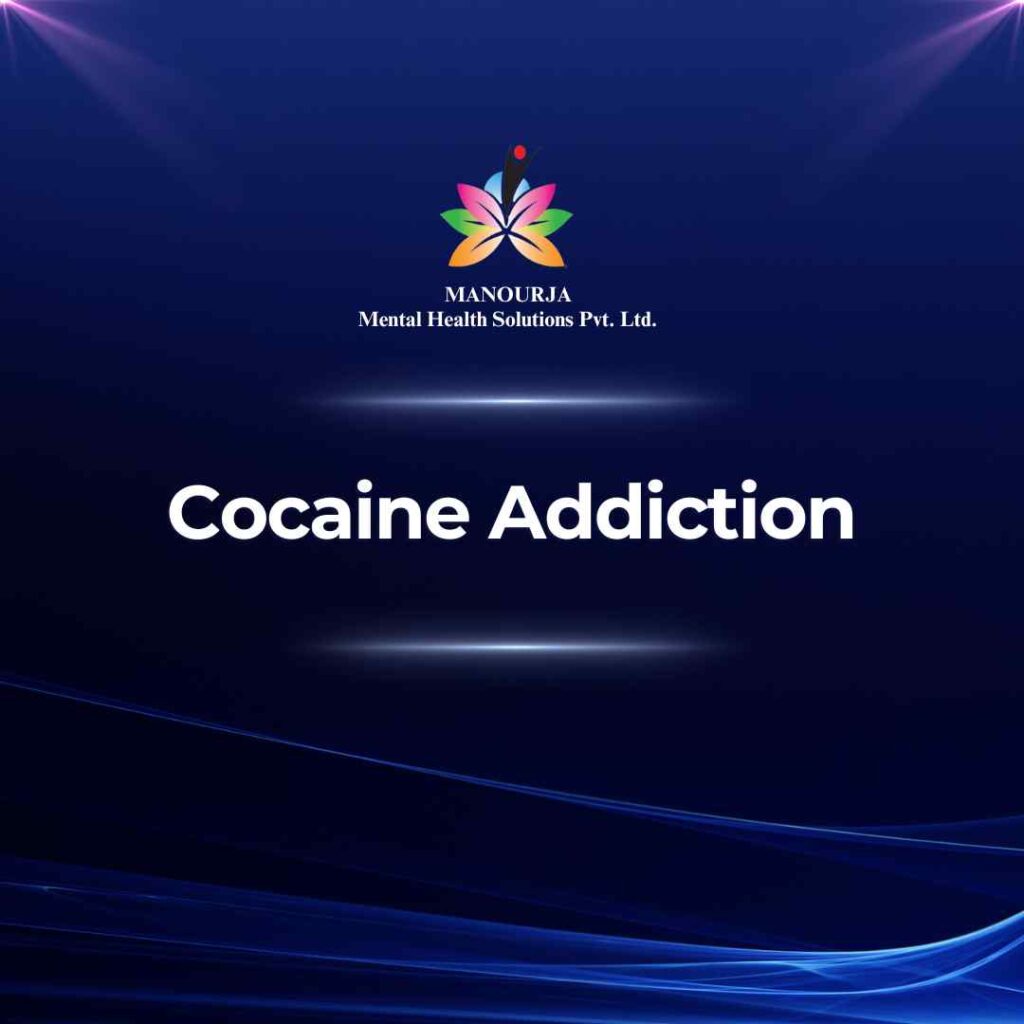Cocaine Addiction

Cocaine Addiction refers to a range of conditions stemming from the use and abuse of cocaine, a powerful stimulant drug derived from the coca plant.
Here’s an overview of cocaine-related disorder, including its meaning, types, and associated hazards:
Meaning
Cocaine Addiction encompasses various conditions related to the use, misuse, or dependence on cocaine. This includes both medical diagnoses and behavioral patterns associated with cocaine use.
Types
- Cocaine Use Disorder: This refers to a pattern of problematic cocaine use leading to significant impairment or distress, as manifested by symptoms such as craving for cocaine, inability to control use, and continued use despite negative consequences.
- Cocaine Intoxication: Cocaine intoxication occurs when an individual experiences significant physiological or behavioral changes due to recent cocaine use, such as increased heart rate, elevated blood pressure, agitation, or euphoria.
- Cocaine Withdrawal: Withdrawal symptoms may occur when cocaine use is abruptly reduced or discontinued after prolonged use. Symptoms may include fatigue, depression, irritability, increased appetite, and disturbances in sleep patterns.
Physical Hazards
- Cardiovascular Complications: Cocaine use can lead to elevated heart rate, increased blood pressure, and irregular heartbeat, which may increase the risk of heart attack, stroke, or other cardiovascular events.
- Neurological Effects: Chronic cocaine use can affect brain function and increase the risk of neurological conditions such as seizures, tremors, and movement disorders.
- Respiratory Issues: Cocaine use can lead to respiratory problems, including inflammation of the airways, difficulty breathing, and lung damage.
Psychological Hazards
- Addiction: Cocaine has a high potential for addiction, characterized by compulsive drug-seeking behavior, cravings, and continued use despite negative consequences.
- Mental Health Disorders: Chronic cocaine use is associated with an increased risk of developing or exacerbating mental health disorders such as anxiety, paranoia, psychosis, and mood disorders like depression.
- Cognitive Impairment: Prolonged cocaine use can impair cognitive function, including memory, attention, and decision-making abilities.
Social Hazards
- Legal Issues: Illicit cocaine use can result in legal consequences, including arrests, incarceration, and involvement with the criminal justice system.
- Social Isolation: Cocaine use may lead to social withdrawal and strained relationships with family, friends, and colleagues, contributing to social isolation and loneliness.
- Financial Strain: Supporting a cocaine habit can lead to financial difficulties, including debt, unemployment, and homelessness.
Addressing cocaine-related disorder requires a comprehensive approach that includes prevention, education, harm reduction, access to evidence-based treatment, and support services for individuals and communities affected by cocaine use.
At MANOURJA, we believe in the transformative power of counseling. Our experienced therapists offer a safe and supportive space where you can explore your thoughts, emotions, and challenges. Through personalized counselling sessions, we’ll work together to develop coping strategies, build resilience, and achieve lasting positive change. Discover the path to a healthier, happier you with MANOURJA counselling services.
MANOURJA Rehabilitation Services
At MANOURJA, we’re dedicated to helping you in rebuild your life, after difficult times. Our rehabilitation services focus on understanding what you need to move forward, whether you’re recovering from addiction, trauma, or any psychological – social challenges. We create personalized plans, that are all about helping you, regain your strength and find hope again. With a caring team by your side, you’ll have the support to make real progress and take steps toward a brighter, healthier future
